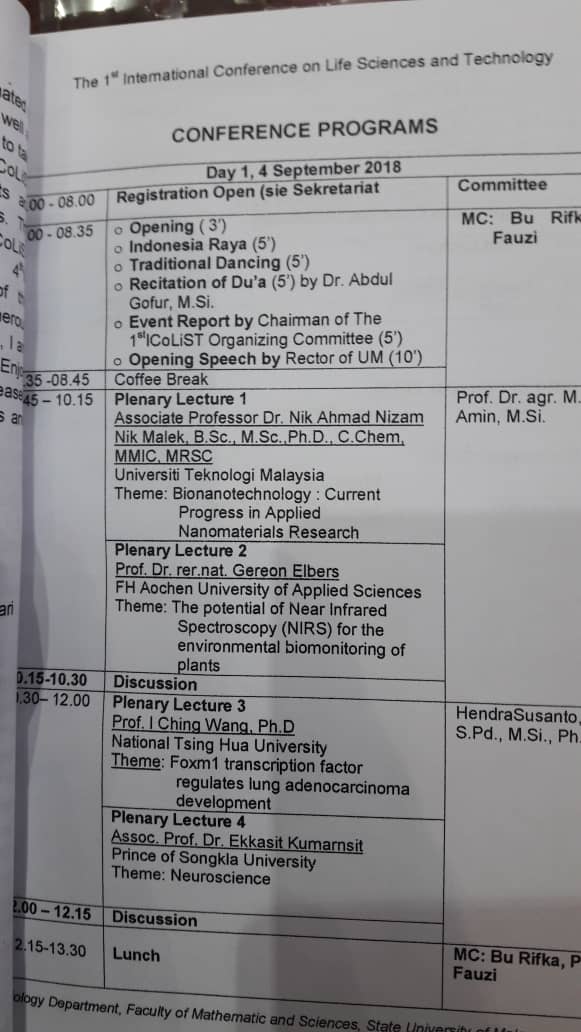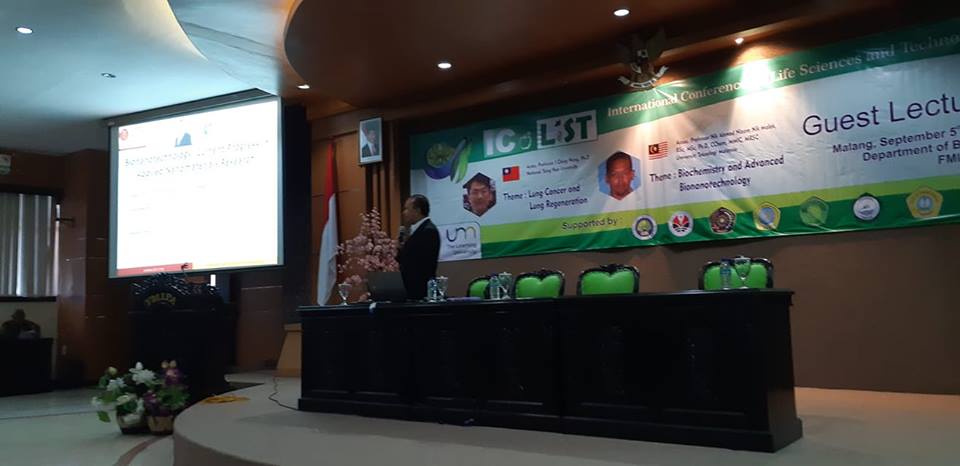Plenary speaker at Annual International Conference on Life Sciences and Technology (ICoLiST) at Universitas Negeri Malang, Malang, Indonesia and Guest Lecture for biology student in Biology Department, FMIPA (http://icolist.biologi.um.ac.id/)
As a researcher in Department of Biotechnology and Medical Engineering, Faculty of Biosciences and Medical Engineering (FBME), Universiti Teknologi Malaysia (Previous position) and also a fellow researcher at Centre for Sustainable Materials (CSNano), Ibnu Sina Institute for Scientific and Industrial Research (ISI-ISIR), Universiti Teknologi Malaysia (UTM), we have facilities, expertise and opportunities in performing researches related to bionanotechnology.
Abstract
Bionanotechnology is a multidisciplinary fields involving nanotechnology for biological and medical applications. One of the area is applied nanomaterials such as biomaterial nanoparticles, adjuvant therapy for cancer, antibacterial agent and drug delivery system. Nanomaterials offer more advantages due to their smaller particles that exhibits higher performance and effectiveness of their application. In our recent progress of applied nanomaterials researches, several synthesized nanomaterials that we want to highlight are silica aerogels nanoparticles as biomaterial and zeolite NaY nanoparticles as adjuvant therapy for cancer. Both of them were synthesized from rice husk ash as silica source. We have found that the synthesized silica aerogels nanoparticles increased the viability and proliferation of normal human fibroblast cells in vitro as well as enhanced bioactivity in simulated body fluid after incorporated with hydroxyapatite. Thus, the hydroxyapatite incorporated silica aerogels nanoparticles could be used as a biomaterial or for wound healing. Whereas, the zeolite NaY nanoparticles had the ability to withstand gastrointestinal condition and good anticancer properties, making it a possible alternative adjuvant therapy for colorectal cancer. There are many researches can be performed in the area of bionanotechnology in the future such as biosynthesis of silver nanoparticles from plant (herbs) extract and synthesized zeolite nanoparticles from kaolin-clay loaded with silver ions as antibacterial agent. Research in the bionanotechnology field necessitate understanding and facilities of various disciplines including physical, analytical, inorganic and organic chemistry as well as biology and medical sciences, thus collaboration with various fields is encouraging to ensure the success of the research output.





